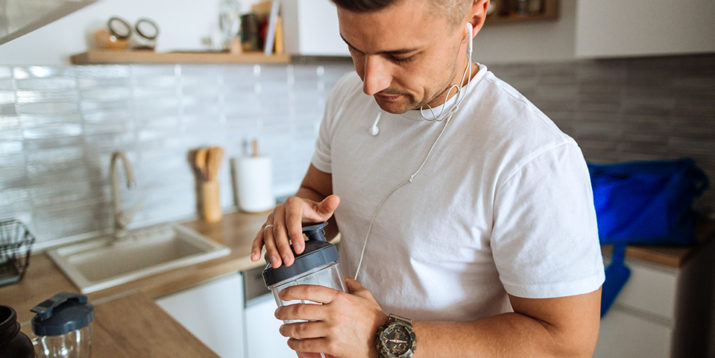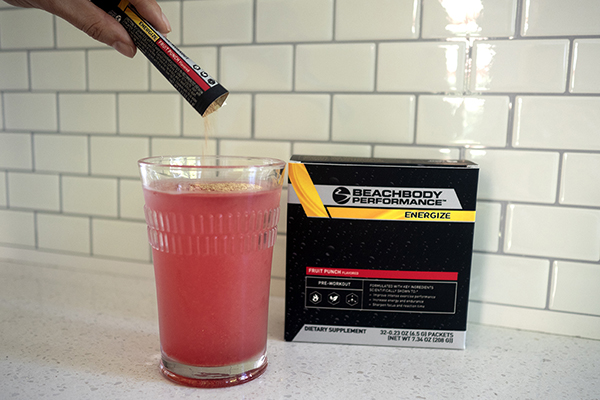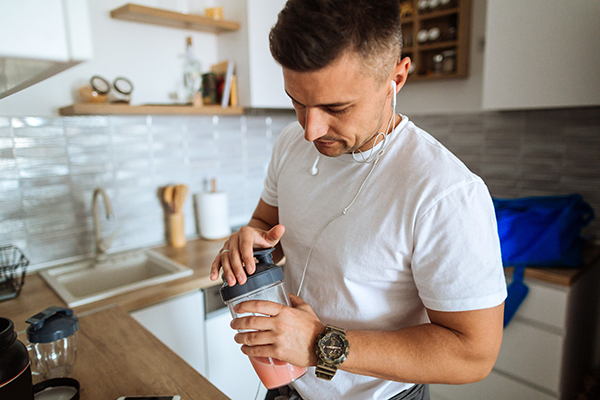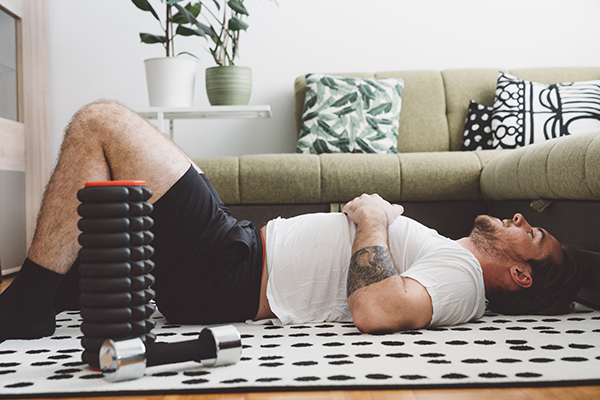Should I Eat Before Working Out?

Knowing when and what to eat before your workouts is a skill worth learning. With the right approach, a pre-workout snack or meal can give you the energy and nutrients you need to crush your goals.
But if you get your timing or food choices wrong, you’ll pay for it later — like when you’re trying to sweat it out with #mbf Muscle Burns Fat or 30 Day Breakaway.
If you’ve ever wondered, “Should I eat before working out?” keep reading to brush up on the dos and don’ts of pre-workout nutrition. (The tl;dr answer is “yes”!)
Why You Should Eat Before a Workout

Fueling before exercise can help prevent fatigue and hunger, as well as boost muscle energy stores to help you perform your best, says Mascha Davis, MPH, RD, the author of Eat Your Vitamins.
Eating before a long and/or intense workout can help you get through the entire session without bonking. That’s when your body runs out of carbs and stalls mid-workout.
And, of course, you can also include Beachbody Performance Energize in your pre-workout routine.
Each serving delivers beta-alanine, low-dose caffeine, and quercetin to help delay exercise-induced muscle fatigue so you can push harder and go longer.*
When to Eat Before a Workout
“A good pre-workout snack can be consumed 30 to 60 minutes before a workout,” says Davis. She recommends eating mostly carbs and other foods that are easily digested before a workout. Now let’s nail down your perfect timing.
Before A.M. workouts
You can usually eat breakfast after your workout. If you’re working out first thing in the morning, you may not need a pre-workout snack or meal. (You also might not want to eat, especially if eating too early turns your stomach.)
“Your body has stored glycogen — aka carbs — that it can use for fuel,” Davis says.
That is, assuming your workout clocks in at less than an hour. If they’re longer, make time to eat or drink a little something that contains carbs. You might also want to make Energize a part of your pre-workout morning routine.

Before P.M. workouts
If you prefer afternoon or evening workouts, and it’s been three or four hours since your last meal, it might be a good idea to top off your fuel stores with a pre-workout snack. Choose one of the options above, based on how much time you have to let your food digest.
“But you should also evaluate how you feel,” Davis says.
If you don’t feel hungry at all and your workout isn’t long or intense, there’s no need to force a snack or meal. Just be sure to replenish with muscle-repairing protein and carbs after your workout, she explains.
The exception? If you’re trying to build muscle, you most likely should eat before your workouts, no matter the time of day, according to the American College of Sports Medicine.
You need to eat adequate calories and protein to promote new muscle growth and repair.

What Not to Eat Before a Workout
Food should fuel your workout, not hinder it. Definitely avoid any foods that typically make you feel bloated or uncomfortable.
And steer clear of food that’s high in fiber, protein, and fat, especially if you’re less than three hours from your workout.
“All three slow down digestion and delay stomach emptying,” says Cynthia Sass, RD, CSSD, a dietitian who has worked with professional basketball, baseball, and hockey teams.
Those are helpful traits when you’re trying to get through your work day without making repeat trips to the kitchen or vending machine. But before a workout?
That trio of high fiber, protein, and fat will only dampen your performance.
“The body has to focus on digesting these foods instead of promoting blood flow to the muscles during the workout,” Davis explains.
Bottom line: If you’re asking yourself “Should I eat before working out?” the answer is likely yes. But choose wisely!
*These statements have not been evaluated by the Food and Drug Administration. This product is not intended to diagnose, treat, cure, or prevent any disease.
